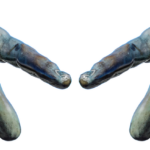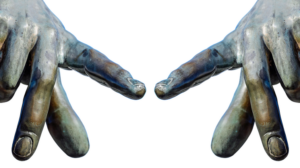
The nervous system is made up of the brain, spinal cord, and nerves that run throughout the body. It is responsible for processing information from the environment, sending messages to different parts of the body, and coordinating our movements. Within the nervous system, motor nerves play a vital role in controlling movement.
Motor nerves are a type of nerve cell that carry signals from the brain and spinal cord to muscles throughout the body. These signals are responsible for initiating and controlling muscle contractions, which are essential for movement. When you decide to move your arm or leg, motor nerves are the ones transmitting the signals that tell your muscles to contract and move.
The process by which motor nerves control movement is a complex one. It begins in the brain, specifically in a region called the motor cortex, which is responsible for planning and executing movements. When you decide to move a body part, neurons in the motor cortex send signals through the spinal cord to the motor nerves that innervate the muscles involved in the movement.
These signals travel down the motor nerves to the neuromuscular junction, where the nerve meets the muscle. Here, neurotransmitters are released that stimulate the muscle fibers to contract. This contraction allows the muscle to shorten and generate force, resulting in movement.
Motor nerves play a crucial role in all types of movement, from simple actions like picking up a cup to more complex movements like playing a sport. Without motor nerves, our muscles would not receive the signals needed to contract and move, leaving us unable to perform even the most basic tasks.
Damage to motor nerves can have serious consequences for movement and muscle function. Conditions like motor neuron disease, spinal cord injuries, and peripheral nerve damage can all affect the ability of motor nerves to control movement, leading to paralysis, weakness, and loss of coordination.
Understanding how motor nerves control movement is essential for understanding how our bodies function and how movement is coordinated. By studying the nervous system and the role of motor nerves, researchers and healthcare professionals can develop better treatments for conditions that affect movement and muscle function, ultimately improving the quality of life for those affected.
In conclusion, motor nerves play a crucial role in controlling movement and muscle function in the human body. By transmitting signals from the brain to the muscles, motor nerves allow us to move, perform everyday tasks, and engage in physical activities. Understanding how motor nerves work is essential for understanding how the nervous system controls movement and for developing treatments for conditions that affect movement and muscle function.




























Add Comment